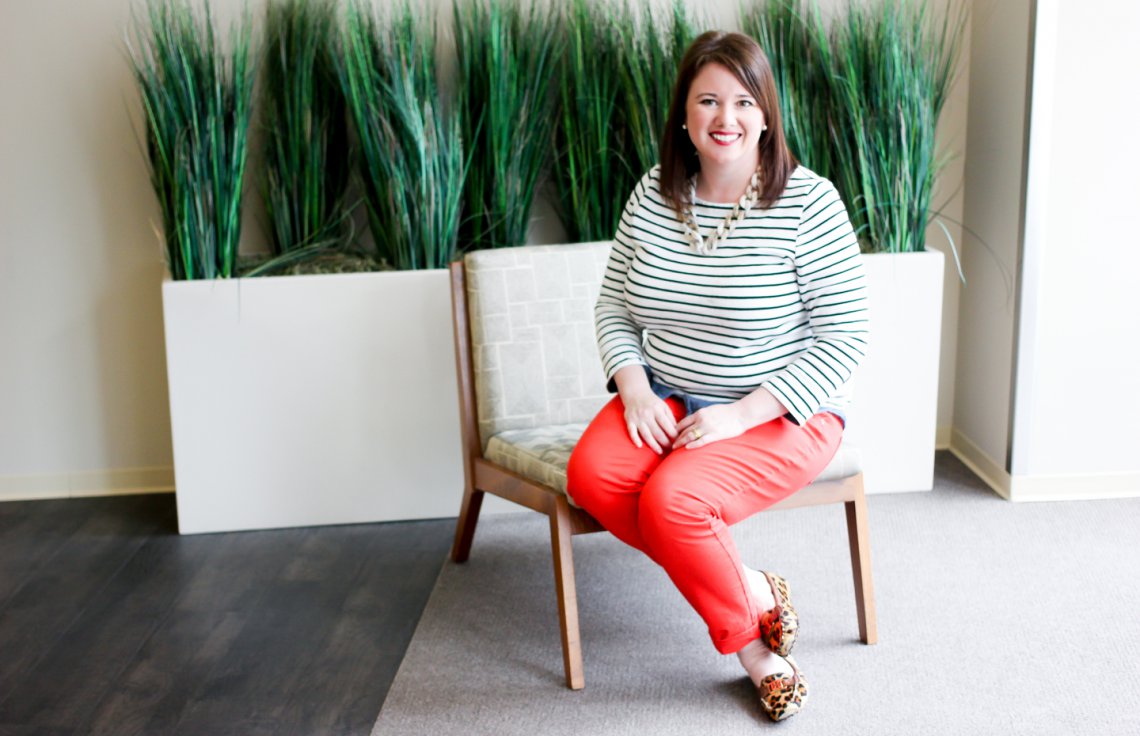Here’s an awesome origin story for you: in the third grade, while most kids were idolizing singers, actors and football players, Natalie Bowman’s greatest role model was Mary Kay Ash, the legendary cosmetics mogul behind Mary Kay cosmetics. Not even finished with elementary school, Natalie already was picking up on the finer points of marketing and branding. With a personal history like that, it’s no surprise that today Natalie works in marketing for Microsoft, one of the world’s leading tech companies (in case you hadn’t heard!).
Specifically, as a Marketing Director for Bing, Natalie is deeply immersed in social media marketing, a rapidly changing field that gives her the opportunity to experiment with new ways to reach an audience. And when social works, it really, really works. Case in point: an epic (and on-brand!) Twitter showdown she instigated between One Direction fans and Beliebers during the 2012 VMAs. Didn’t catch it for yourself? See it here.
So, how exactly do you build a brand that garners this kind of community engagement? A few tips from Natalie: create strong content, engage with your followers and trust your audience to take it from there. Keen to know more?
Her Starting Point
Your first post-collegiate job was as brand manager for the Nissan Company. That’s huge! How did you land that position with such a big name brand?
The business school at the University of Texas had a phenomenal career center that presented graduates with opportunities with many major brands. I came from a car dealer family so automotive was in my blood; I was thrilled that Nissan recruited at UT.
Did you always have a passion for marketing and advertising? Who, or what, inspired you to pursue it as a career?
Always. When I was in the third grade, we were asked to do a project on a prominent Texan. Most of the students chose football players and actors or musicians. I chose Mary Kay Ash, the founder of Mary Kay. She was a genius at branding and marketing—both a product and a lifestyle—and even at the age of eight, I was compelled by the idea of a brand.
When did you know that you were ready to leave the advertising world? How did you go about making the transition to social media marketing?
I never thought of it as leaving the advertising world; I was simply ready to go deep in another element of the marketing mix. However, once I got into it, it was apparent how different the approach needed to be in order to achieve success. Advertising is often about controlling the message. Social is about sharing a story and trusting your fans to turn it into something fantastic. If you’ve built the right brand, it works. If you haven’t, social fails fast.
After switching careers, was there ever a moment when you thought, “I was meant to be here”? If so, when? Tell us about the mental shift.
Funny to hear it referred to as a “career switch” because it was actually still working for the same person just in a new capacity—Eric Hadley, who is now the Head of Partner Marketing at Pinterest. Once I started in Social, it felt like a very natural progression from what I had been doing. Understanding our brand so deeply and having created 25+ ads for Bing, it was easy for me to bring the brand to life through social. There also was this sense in Social that everything was new and that it was okay to test and fail. Not everything worked and some things worked on such a massive scale that it astounded me. One example is a social promotion we did with MTV around the VMAs. We created a Twitter feud between Beliebers and One Direction fans through our social voting promotion, which generated millions of engagements. Bing even received a tweet from Justin Bieber. No way we could have predicted that that would happen.
Her Big Break
We imagine that managing the social media for a tech company is unique in the industry. How do you engage with your followers, and how do you go about building a following?
Building a following as a brand from a major corporation or as a small business owner just starting out always boils down to two things: content and community. Creating interesting content that engages your followers will always result in growing your following. But it can’t always be a one-way street. The strongest social brands are those that engage back with their followers, that follow and comment on their fans’ posts.
In addition to being Marketing Director for Bing, you’ve done freelance writing for some notable publications (Seattle Times, Ocean Magazine, etc.). How has your work influenced your writing, or vice versa?
Freelance writing allowed me to engage in more of my passion areas—fashion, beauty and home—that I wasn’t using as much in my day-to-day job.
You’ve been involved in the Mobile Marketing Association and were part of their pre-screening council for The Smarties (mobile marketing global awards program). How has involvement in professional organizations been helpful in your career? What other organizations are you involved in?
I serve on the Brand Council for the Word of Mouth Marketing Association (WOMMA) and the Digital & Social brand committee for the ANA [Association of National Advertisers]. Professional organizations and events are a great source for case studies and for meeting other people who do the same work as you. It is great to be able to benefit from the experiences of others in completely different industries.
Her Perspective
Who have been some mentors—in or out of the workplace—who have helped you grow professionally and offered some guidance in difficult situations?
Danielle Tiedt, who is now the Chief Marketing Officer at YouTube, was my mentor who eventually became my boss of 5+ years. When she thinks you are a star, she has an undoubting belief in your potential that becomes contagious. She makes you believe that you are capable of being great. I love that about her. I’ve found mentorship can come in unexpected places, I work with many millennials and when we are in tough situations, I’m learning so much from their positivity and optimism. And the beauty of social is that you are surrounded by these younger, excited and creative people.
You’ve traveled all over the world and worked with many extraordinary people in your line of work—you’ve been to Sundance, the Oscars and the White House. What is one of the most surreal experiences you’ve had since starting your career with Microsoft?
The morning I went to the White House was a surreal moment for me. I have always had a deep interest in politics but it never crossed over into my career, so being able to visit the White House through Bing was an unexpected benefit. Microsoft also has provided me with the opportunity to travel all over the world—Australia, Brazil, Japan, China. Working for a global company allows you to experience so many different cultures and meet new people.
You’ve been involved with the Junior League of Seattle (including a turn as President) for eight years. How did you first get involved? What advantage does the affiliation offer to you, both personally and professionally?
I joined the Junior League in Los Angeles after college and it was a great place for me to meet like-minded people. Over the years, the organization has been a constant for me. I’ve moved five times in the past 15 years and each time, the Jr. League is how I meet my people in my new city. For any woman who wants to grow as a leader while also contributing to their community, there is no better organization.
And finally, what do you wake up looking forward to? What’s next for your career?
I wake up looking forward to kissing the cheeks of my one- and three-year-old children. I am not a fan of the phrase ‘work/life balance’ but I do think there are times when you might choose to prioritize one over the other and that’s where I am now. It is important to me that I am in roles where I have the flexibility to manage my own schedule and take my son to swim class or watch my daughter at ballet.
You May Also Like
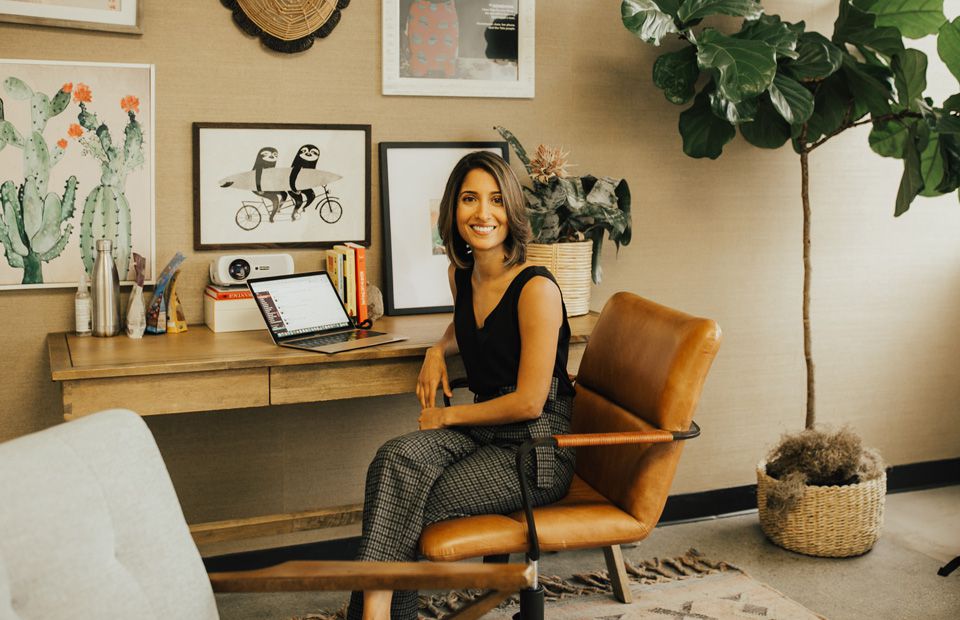
Technology
A Tech Founder on Why Being an Outsider Is a Strength
"I actually think most successful founders are rebels, of a sort. We’re trying to do new things and take on entrenched systems or ways of thinking. What makes me and our company different is that we’re outsiders."
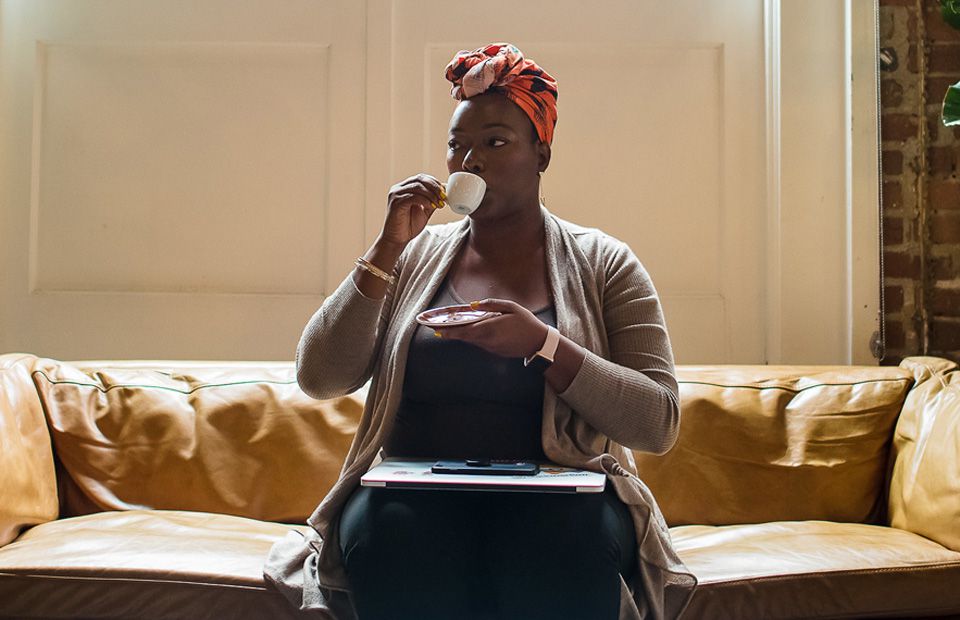
Technology
Omoju Miller—Tech Veteran, Leader, and Volunteer Advisor to the Obama Administration—on The Crucial Role of Creativity in the Tech Industry
"If you are in an environment where you feel marginalized, leave. Don’t try to change it. Go and look for a place that sees you and lets you be you."
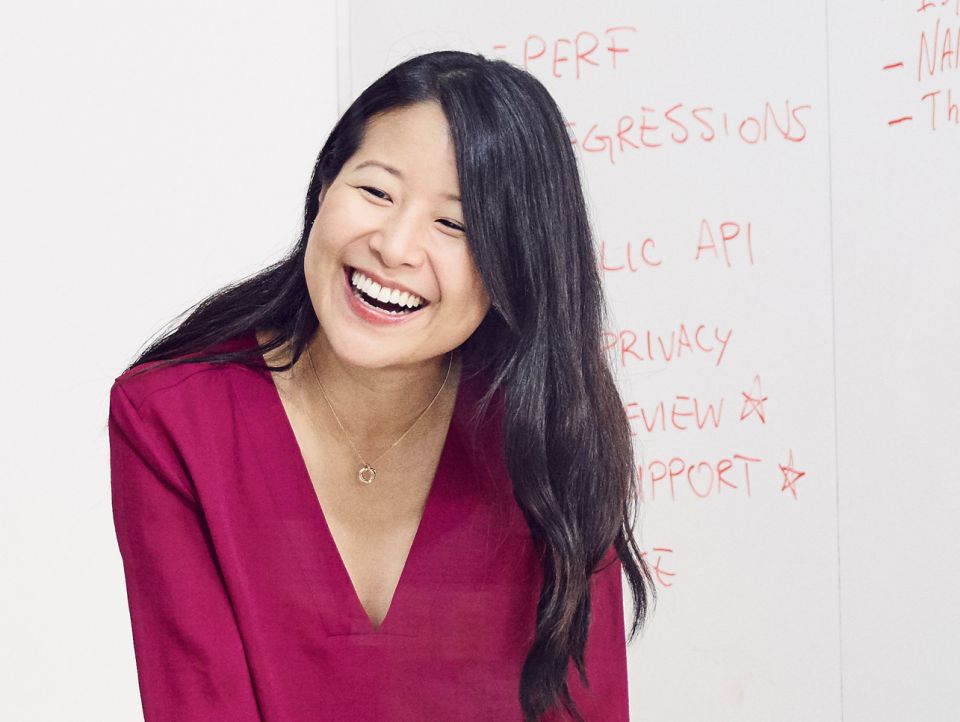
Technology
Sharing Stories as a Software Engineer
We sat down with Apple software engineer Emilie to learn about her day-to-day working at Apple along with what it takes to run the perfect meeting and her favorite ways to unwind.
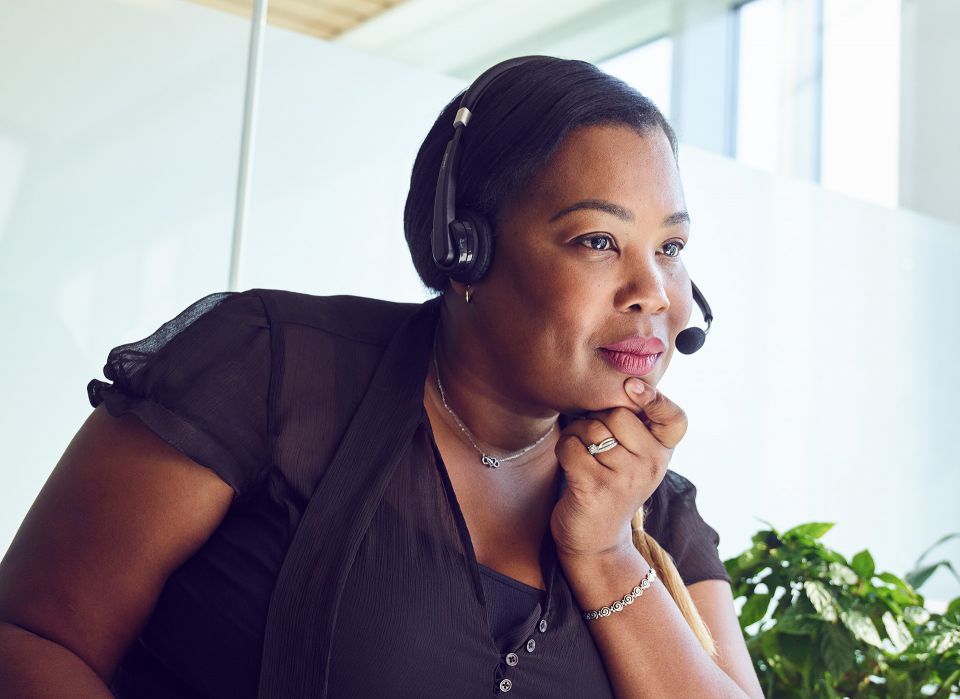
Technology
Creating Impact with Apple
We sat down with Apple's Senior Developer Partner Relations Advisor, Cris, to learn about what it takes to create a lasting impact within a large company. She shares a typical day in the life, her favorite book recommendations, and her top four tips to running a meeting.
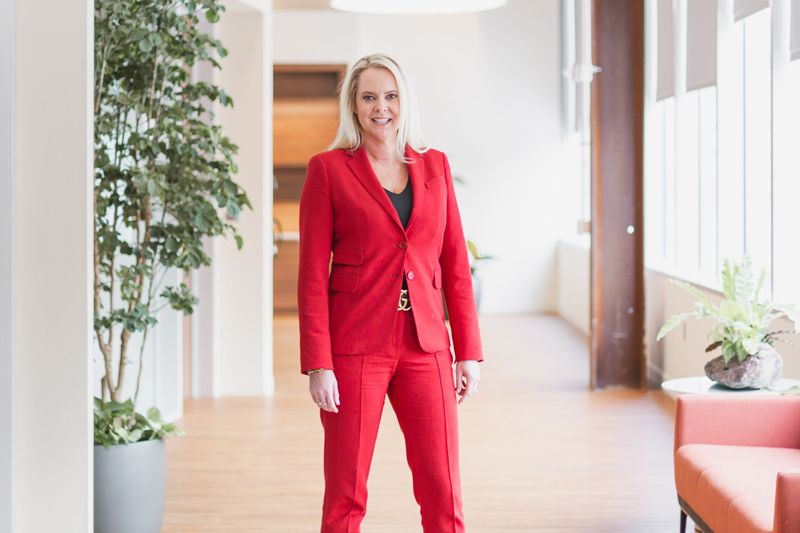
Technology
Salesforce’s Senior Vice President of Sales on Unconscious Bias, Failure, and Innovative Leadership
"Do not be afraid to fail, just bring your best self to the table."
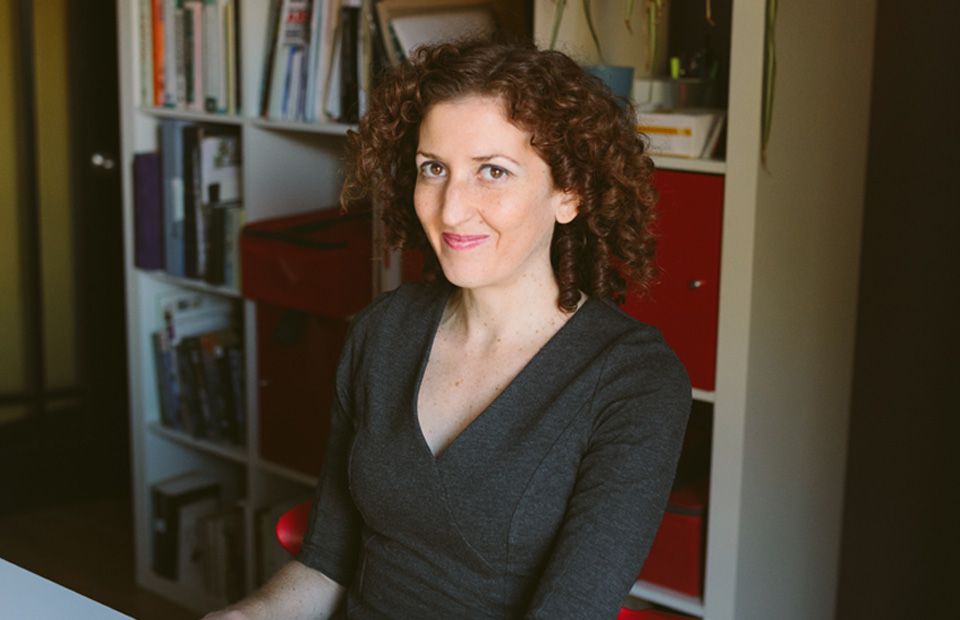
Technology
A Director of Engineering on Tech + Leadership
"I don’t believe in 'having it all'. If you spend more time on one thing, then you spend less time on another thing. All we can do is make choices on how to spend our time."
Get the Best Career Advice Delivered To Your Inbox
Join our newsletter to stay in the loop.
